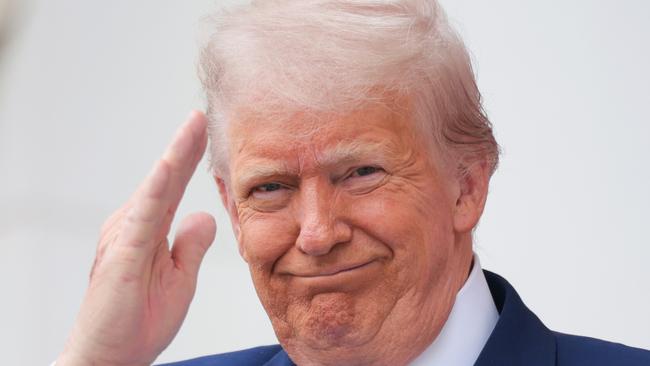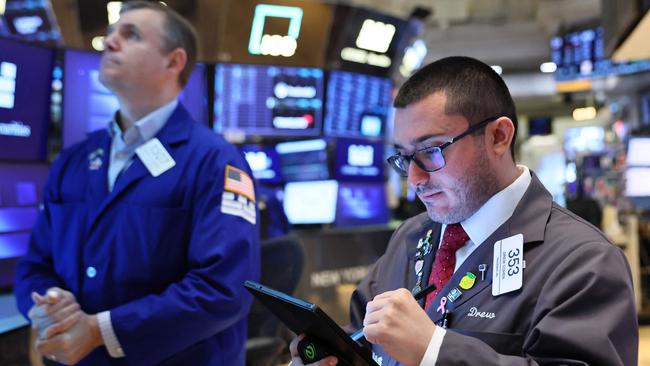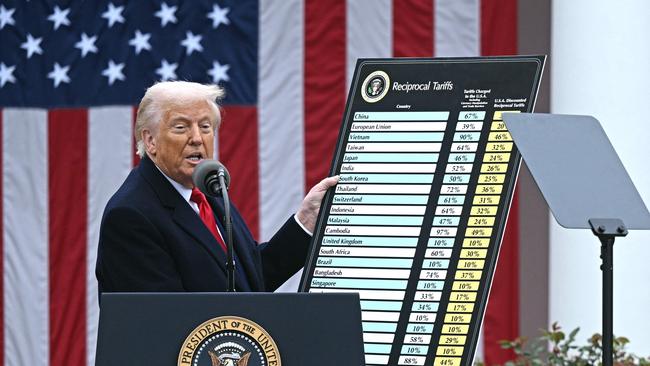
Donald Trump has successfully lived the maxim that it’s easier to ask for forgiveness than seek permission. But forgiveness might not work this time, after the Court of International Trade in Manhattan struck down as illegal the centrepiece of his economic plan: the kaleidoscope of so-called Liberation Day tariffs imposed on almost every country in early April.
Liberation Day may turn out to have been Humiliation Day for the White House.
The unanimous order by three judges, two Republican-appointed and one Democrat, not only repudiated a range of tariffs that might have generated tens of billions of dollars of revenue, but undermined trade negotiations with more than a dozen nations.
Investors may have ridden a multi-month financial rollercoaster for no reason.
Presidents aren’t kings, and Trump could only levy the arbitrary tariffs on his reading of the International Emergency Economic Powers Act of 1977, which allows presidents to levy tariffs in the case of “national emergencies”.
The judges argued that green-lighting Trump’s claimed emergency of choice, a chronic trade deficit, was tantamount to allowing the President to deem anything a national emergency, such as a shortage of peanut butter, one judge mused.
Indeed, very few professional economists would deem a trade deficit a national emergency – if anything, it’s a sign of strength.
In any case, “an unlimited delegation of tariff authority would constitute an improper abdication of legislative power to another branch of government”, the judges added in their verdict.
As a nation that thrives on free trade, Australia might thank the court, if the higher tariff world that seemed more likely yesterday has suddenly become a vaguer prospect. But the pall of uncertainty will, for months, gridlock investment decisions the world over, as the White House has already signalled an appeal that could make its way to the Supreme Court. Share prices jumped on the news, but not by much.
It’s unlikely the White House will get its way.
As Phil Magness, senior fellow at the Independent Institute who has followed the case closely, points out, the Trump administration actively sought out this obscure court for a favourable verdict.

“One of the Republican judges was Trump-appointed and recommended to him by Trump’s own arch protectionist tariff guru, Robert Lighthizer, and the court’s rationale drew on the non-delegation doctrine,” he says.
Indeed, American conservatives popped the champagne last year when the Supreme Court delivered the landmark Chevron decision, which shifted power back to the courts when it came to interpreting what laws meant.
“Good luck arguing that this court was stacked against them, or that these were ‘leftist judges’ who were out to thwart the will of the President,” Magness adds.
The supposedly conservative Supreme Court might not be much help either. Trump’s success rate with the nation’s highest court during his first term was the lowest of any president since World War II, according to a recent legal study by scholars Lee Epstein and Rebecca Brown.
The court has been a mixed bag in Trump’s second term, sometimes undermining his attempts to deport immigrants the White House has deemed unfit to remain in the US.

Nevertheless, ruling against Trump over his beloved tariffs would be a bold move, setting up the possibility the President will simply ignore the court entirely. That would damage both of them, not to mention the rule of law in the US.
Trump has a somewhat cavalier attitude to the law so far as it constrains his own power. Whatever one makes of his political and economic program, he’s hardly been an enthusiastic supporter of judicial independence.
The ability of courts to defy the government is a remarkable strength of the US, something that rarely happens in Westminster countries, where courts tend to defer to ministers.
Some Trump supporters might not like courts sticking their nose in the definition of a national emergency, but they did like it when some brave American judges struck down Covid restrictions as illegal or unconstitutional during the pandemic. Swings and roundabouts.
I’ll be forever grateful to Florida federal judge Kathryn Mizelle, who in April 2022 freed millions of Americans (and me) at the stroke of a pen from the abject nonsense of being forced to wear a mask on public transport.
It’s impossible to predict how the Supreme Court will decide, let alone how Trump will react, in this grand forthcoming clash over tariffs and the law. Never will Supreme Court justices have made a decision with such vast economic and financial consequences.
Trump could put to bed Democrats’ relentless claims he’s a “dictator” by abiding by whatever the court decides. It would be better, however unlikely, for Trump to seek the support of Congress for at least some of his tariff vision. There is a bipartisan constituency in the US to seek to revive manufacturing; a lot of Bernie Sanders supporters voted for Trump, after all.
As a disappointed Elon Musk noted this week, the US desperately needs to cut spending or raise revenue, and the President’s so-called big, beautiful budget bill does neither of these things.
Congress is not inclined to impose tariffs, but a universal, low one in the interests of raising a decent stream of revenue and avoiding a fiscal disaster might offer some appeal. A consumption tax that foreigners partly pay.
Recent erratic behaviour in the US bond market should be a reminder the US is not entirely insulated from financial market discipline. Washington gets the longest leash of any nation, but what the bond market did to the UK’s Liz Truss in late 2022 it could do to Trump in coming years.
The President might receive forgiveness for a misreading of trade law, but he’d never get it for causing global financial crisis.
Adam Creighton is chief economist at the Institute of Public Affairs




